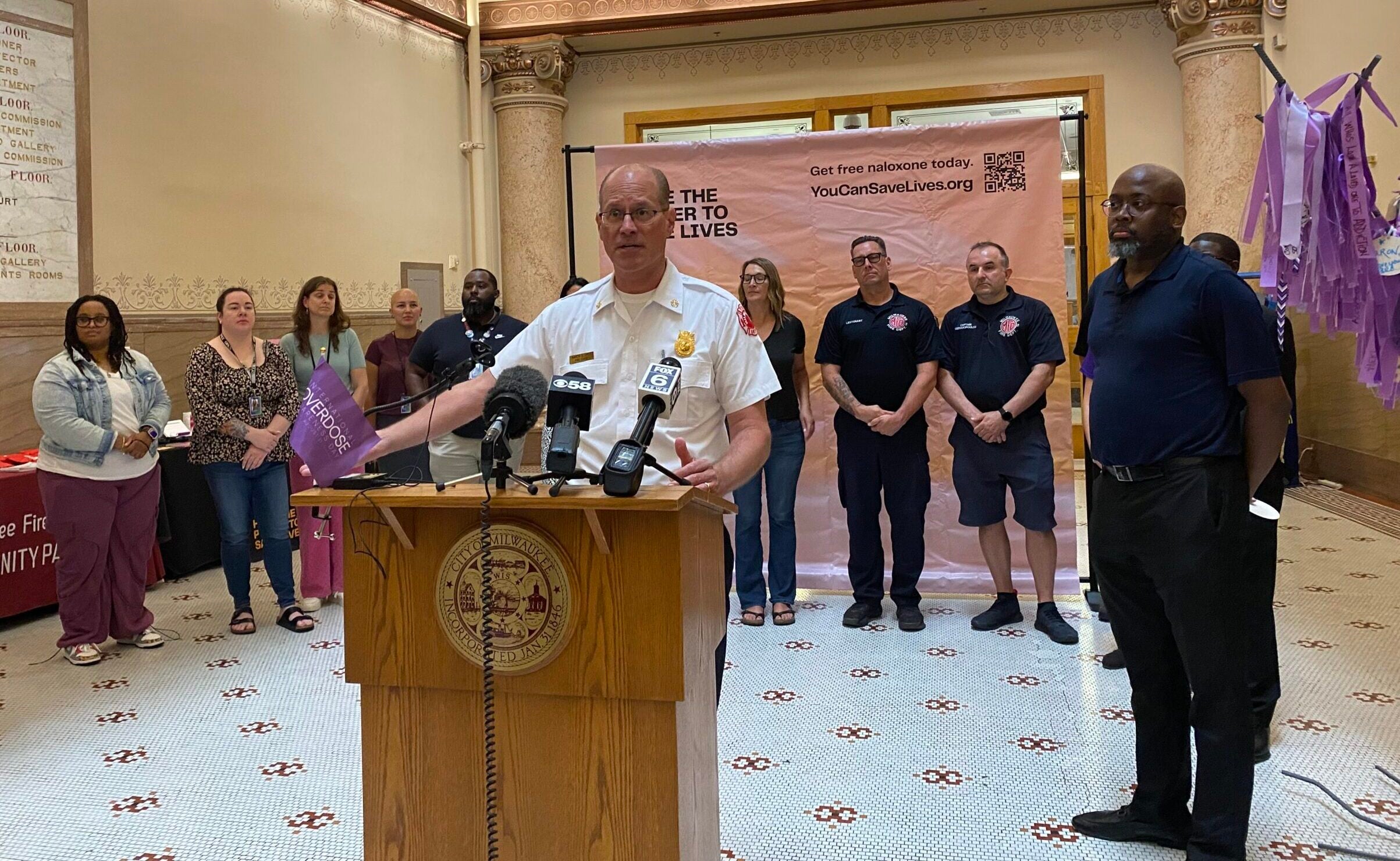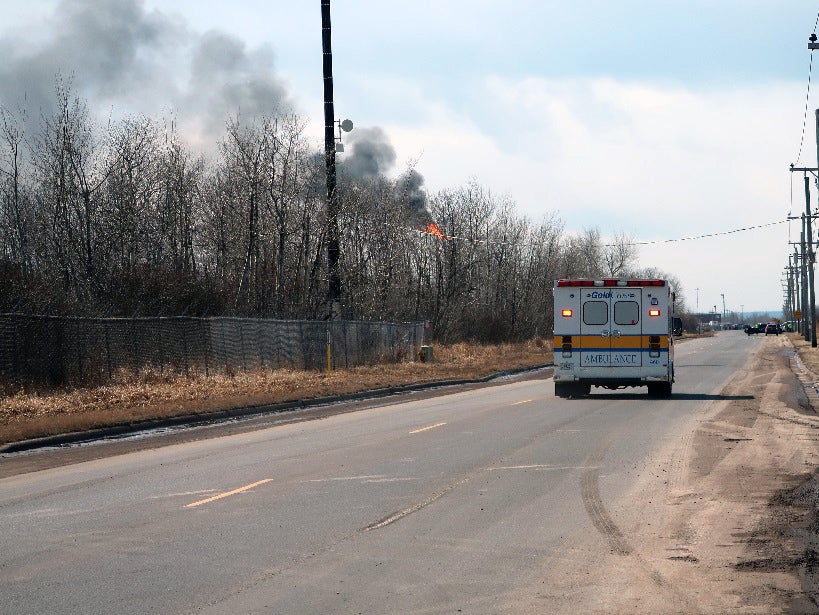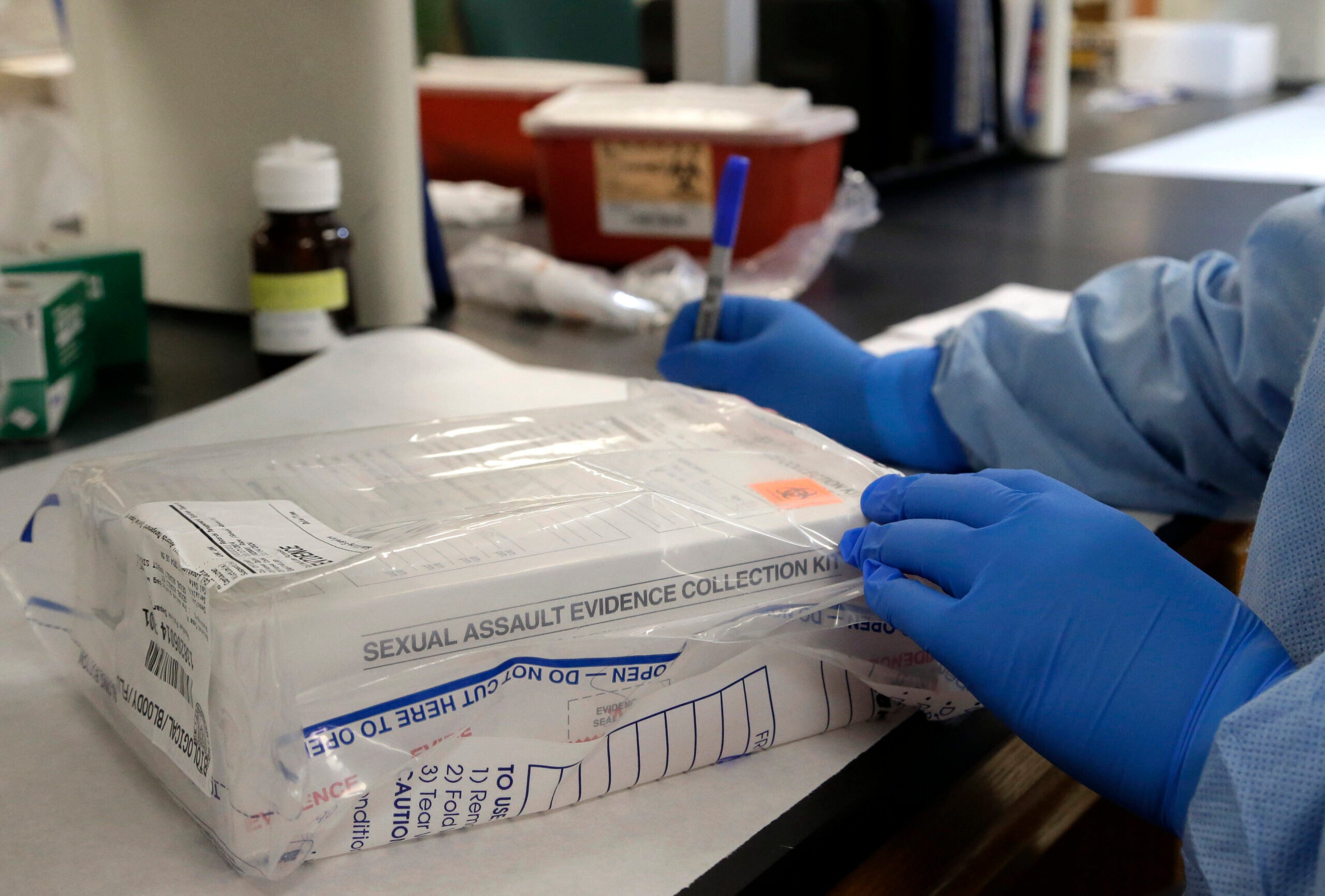A federal grant is helping Viterbo University in La Crosse educate counseling students by sending them to rural areas to help people addicted to opioids.
The Vital Opioid Instruction through Community-based Experiential Training, or VOICE program, will provide internship opportunities for 45 masters–prepared counseling students over the next three years.
The program also includes a community education component about opioid abuse and is made possible through a $741,000 grant from the U.S. Department of Health and Human Services.
News with a little more humanity
WPR’s “Wisconsin Today” newsletter keeps you connected to the state you love without feeling overwhelmed. No paywall. No agenda. No corporate filter.
“It’s trying to provide the best health care providers we can around the issue of substance abuse targeting opioids and to try to expand services,” said Debra Murray, director of counselor education at Viterbo and project director of VOICE. “There’s a lot of disparity if we look around the counties that circle the La Crosse area and trying to see what we can do to make those gaps less problematic.”
Sixty percent of the grant will go directly to students to help offset the cost of things like traveling to an internship with medical partners who provide substance abuse counseling in high-need rural areas. The rest will fund a series of community-wide town hall meetings and summits on various aspects of opioid addiction.
“There had been times in the past I would have (a rural health provider) call and say, ‘Can we have an intern?’ I would really want to give them an intern, but the whole piece was, it was a 45-minute drive, then it was going to be gas and wear and tear on a student’s vehicle. There were a lot of barriers,” Murray said.
One of the medical partners is Scenic Bluffs Community Health Centers, about a 30–minute drive from La Crosse.
The primary care clinic with locations in Cashton, Norwalk and a dental clinic in Viroqua, serves mostly low–income rural residents.
“With substance use disorder, it’s more along the lines of alcohol use disorder than it is opioids and prescription drug misuse, but certainly that is absolutely a growing part of what Wisconsin’s rural communities are facing,” said Mari Freiberg, Scenic Bluffs chief operating officer.
“Last year, the health center served about 7,600 different patients with about 23,000 visits, but behavioral health services is a small part that, just 2,300 visits that we did last year. We expect that is going to grow,” she said.
Freiberg said Scenic Bluffs has just one therapist who is certified to see patients for mental health and alcohol and substance abuse services.
She hopes the VOICE program will help rural providers attract more mental health and substance abuse counselors.
“Being in the shadow of the systems in La Crosse in Cashton makes it a bit more difficult to hire providers because there’s an inherent draw for clinicians who want to work in larger communities with the support network around them,” Freiberg said.
“Recruitment and retention is a challenge for any rural health care provider. For us, knowing that we have a pipeline of individuals who are skilled and qualified who are coming down — if we can show them our organization through training; if we can give them the experience of our integrated health care model — We think that serves us well and gives us this opportunity to maybe down the line hire them to come and work for us.”
Statistics provided by the Wisconsin Department of Health Services show opioid-related deaths and emergency room visits declined slightly between 2016 and 2018.
Wisconsin Public Radio, © Copyright 2025, Board of Regents of the University of Wisconsin System and Wisconsin Educational Communications Board.







